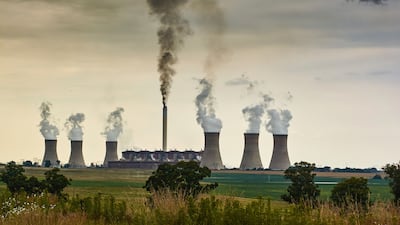Charles Dickens, one of Britain's most famous authors, was a rare voice in his time. By focusing his novels on the poor in 19th century England, he tackled subject matter that many of his wealthier contemporaries preferred to ignore. Smog – thick, visible air pollution – hangs above many of his descriptions of Victorian cities, a sign of the darker side to industrialisation and that all was not equal. A century later, a similar problem was starting to hit the US. In 1948, a town in Pennsylvania experienced the country's first "extreme air event", raising the average death rate six times over.
Inevitably, many of today's hotspots for air pollution are also in industrialising areas. According to a World Air Quality report released by Swiss firm IQAir, Delhi remains the world's most polluted capital for the fourth year running, and 62 other Indian cities are in the 100 worst affected places globally. Bhiwadi, in the western state of Rajasthan, is the most polluted city in the world.
Richer countries are also affected. In the Middle East, Oman and Bahrain are ranked the sixth and eighth countries with the worst air pollution respectively. Almost two centuries on from when Dickens was writing, London's mayor is issuing the city's first air quality warning in two years, encouraging people not to make unnecessary car journeys.
The problem needs tackling urgently. Nine out of 10 people living in urban areas are affected by it, living with an increased risk of cancer and respiratory and cardiovascular illness. It is even thought to stunt neurological development. Children and the elderly are disproportionately harmed.
Unfortunately, some air pollution is inevitable, particularly in the Gulf, where dust storms and hot climates can combine to create naturally high levels. But there are ways to tackle it. More data-driven understanding of the problem is giving urban authorities the know-how to impose controls, often in the form of toll charges, in areas with high emissions. From Milan to Dubai, pedestrianisation initiatives are in part intended to improve urban health. And for those vehicles that must remain, investment is being poured into cleaner fuel, be it in Chile, the first country to use electric buses, or in Germany, which ran the first hydrogen train in 2018.
Crucially, the debate about what to do must not ignore the right of countries to develop. Instead, fighting air pollution can be promoted as a worthy part of a new, greener type of industrialisation.
Many are already embracing the reasons to build greener urban environments, from the need to cut carbon emissions to the economic benefits of investing in green technology. Looking at IQAir's report, there is also a clear health argument. New Delhi recorded 54,000 premature deaths linked to air pollution in 2021. The world is just beginning to emerge from the worst days of Covid-19, one of the most deadly respiratory diseases of all time, which took all nations by surprise. Countries must now turn their attention to a problem of similar magnitude, which has been known about, one way or another, for centuries.











